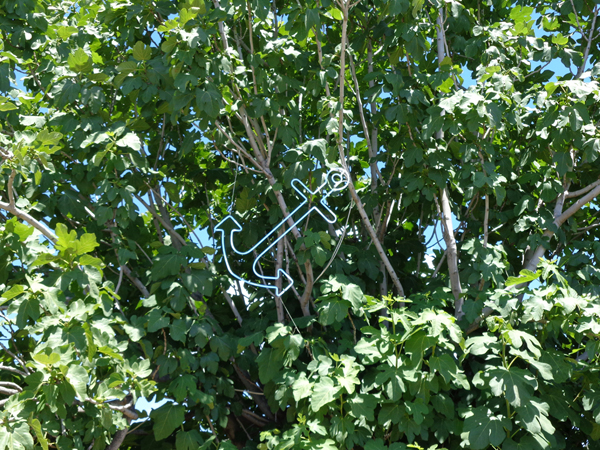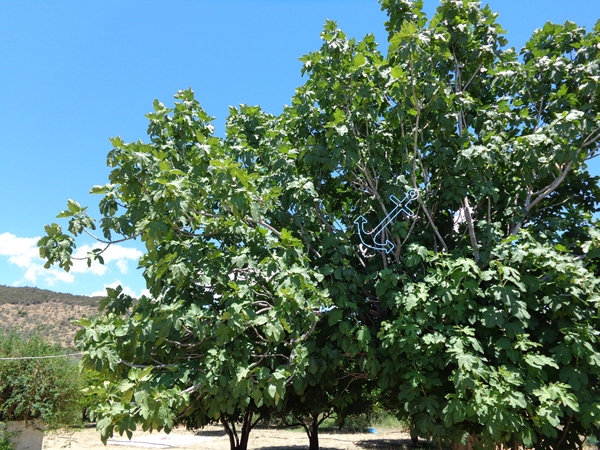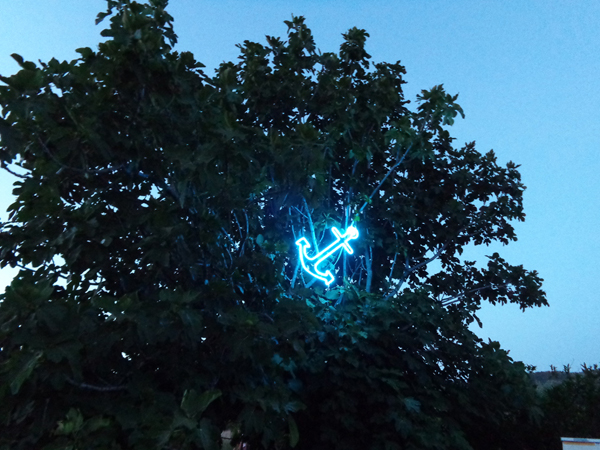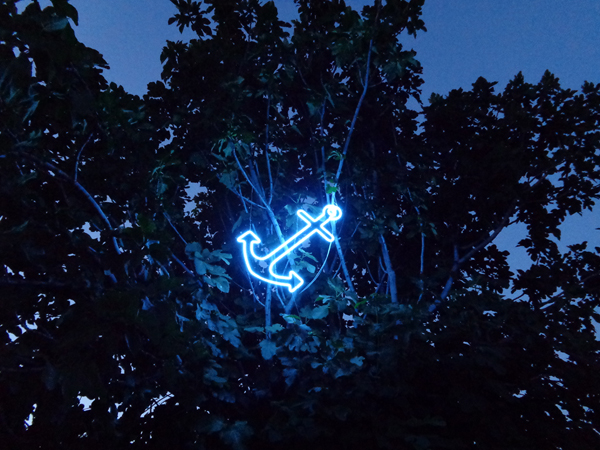The Anchor
Extra-Conjugale conceived a neon light sculpture specially for Lustlands vol. II. In shape of an anchor and in direct dialogue with The Great Eastern, the fluorescent blue light is placed on top of a fig tree for the duration of the show. As the night falls, the visibility of the work is increased. In total darkness The Anchor illuminates the fig tree but also the land that lies around it.
Lustlands vol. II
June 4th 2013, Thermissia, Peloponnese.
Curated by Nadja Argyropoulou and Lakis & Aris Ionas / The Callas
Lust was examined first as the wild and remote lands suggested by the title and romantically reconsidered by the crisis-ridden Greek youth; then as the valuable energy source that allowed for the unusual transporting overseas dictated by the hard reality of tight art budgets.
Found in abundance in the much condemned South, lust is reconsidered this year on board The Great Eastern, a seminal and radical work of Greek Literature written by writer, psychoanalyst and photographer Andreas Embiricos (1901-1975) between 1945 and 1951.
Comprised of 642.000 words in 8 volumes, The Great Eastern is a fierce erotic-political utopia that references Fourierism, the writing of Marquis de Sade as well as Jules Vern (who actually conceives his Une Ville Flotante within the other book) and a great number of writers and thinkers of the 19th and 20th c. and was published only between 1990-1992, raising major criticism. In this magnum opus of a novel, the New World is the destination, the steamship of the title is the floating paradise of free eroticism, and society is re-imagined as the innocent and fair kind of co-existence that only this freedom can generate. Inexorably repetitive in the narration of the sexual gyrations of its passengers, The Great Eastern is also characterized by its formally polished style, and almost archaic language, an idiom into which European ‘classics’ were translated in Greek in the late 19th century.
A work of “the heights and the depths”, as Embiricos himself used to describe it, distinguished by its cosmopolitan spirit and intertextuality, The Great Eastern was curiously criticized as being “pornographic” and “delirious” as well as “boring”, “annoying”, “wearisome”, even “frustrating”. Very few can claim to have read all of it.
Lustlands, Vol.II – On The Great Eastern (after Andreas Embiricos) , as organized on the Peloponnesian family farm, on June 4, 2013 is a small step towards investigating all of the above by means of thinking, acting and enjoying in a collective -or not level. Things, events, low-fi gigs, countryside sculptures and rural installations, performances, projections, food and drink will be featured.
Lustlands, Vol.II – On The Great Eastern is a work in progress where love, lust, desire, boredom, ennui, revolution and the politics of co-existence are examined in vitro.





